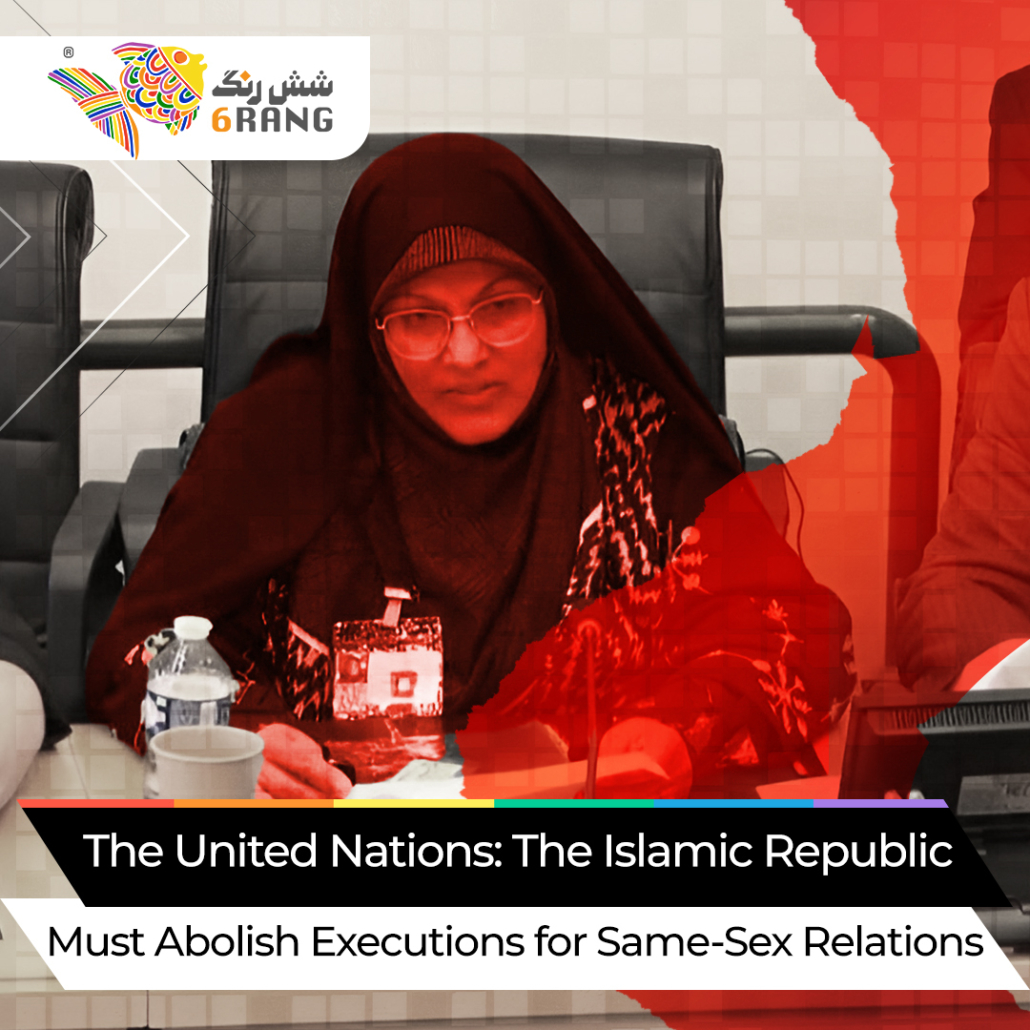The United Nations: The Islamic Republic Must Abolish Executions for Same-Sex Relations
A UN entity, the International Covenant on Civil and Political Rights (ICCPR), has urged the Islamic Republic to decriminalise same-sex relationships and strongly condemns severe criminal penalties, ranging from flogging to convictions for such relationships and activities advocating for the rights of sexual and gender minorities.

The UN Human Rights Committee, in a recent section of its concluding observations after a thorough examination of the state of civil and political rights in Iran, stated: “Government officials have repeatedly stigmatised sexual and gender minorities based on laws related to public morality. They have subjected and mistreated these individuals during detention.”
Expressing concern over reports indicating that Iranian individuals have been pressured to undergo “gender reassignment” without consent, the committee warns the Islamic Republic. It insists that anyone engaging in consensual, genuine, or perceived sexual activities, including violence against sexual and gender minority communities, should face penalties. The committee holds government officials accountable for hate speech against these communities, potentially escalating to crimes motivated by hatred, and threatens to endanger them in accordance with human rights standards.
The UN Human Rights Committee also expresses concern over the death sentences issued for Sareh Sedighi Hamedani and Elham Choubdar and the legal persecution and death sentences for human rights defenders supporting sexual and gender minorities. These actions are seen as grounds for international concern.
According to the International Covenant on Civil and Political Rights, of which Iran is a member, member states are obliged to adhere to human rights, the right to life, personal freedom and security, non-discrimination, and principles such as the prohibition of torture and the abolition of the death penalty. The Covenant emphasises adherence regardless of sexual orientation, gender identity, religion, ethnicity, etc.
The final opinion of the UN Human Rights Committee comes after a session held last month, where committee members met with representatives of the Islamic Republic in Geneva. During this session, Zahra Elahian, a parliamentary representative, responded to the committee’s inquiries regarding punishments for homosexuals and the harassment and persecution of sexual and gender minority communities in Iran. She claimed that the international community does not recognise homosexuality officially and that the International Covenant on Civil and Political Rights does not include the rights of homosexuals and is not officially recognised in the Islamic Republic.
Previously, 6rang Network submitted two research reports to the UN Human Rights Committee addressing the legal rights of sexual and gender minorities in Iran and violence against LGBTQ+ protesters during the 1401 popular uprising.
6rang reports, based on the organisation’s field research, delve into topics such as the expulsion of homosexuals for undergoing gender reassignment surgeries, the identification and torture of individuals due to their genuine or perceived sexual orientation, gender identity, and specific targeting against this community. The second report highlights findings regarding torture and multiple instances of cruelty against LGBTQ+ protesters during the recent popular uprising, aligning with the UN Human Rights Committee’s concerns.
Iran ratified the International Covenant on Civil and Political Rights (ICCPR) in 1975. The covenant, recognised by the United Nations, serves as a cornerstone for promoting and supporting fundamental rights and regulates the rights of all humanity. The recommendations presented by this covenant are a crucial step towards recognising and protecting the rights of the LGBTQ+ community in Iran.


Leave a Reply
Want to join the discussion?Feel free to contribute!